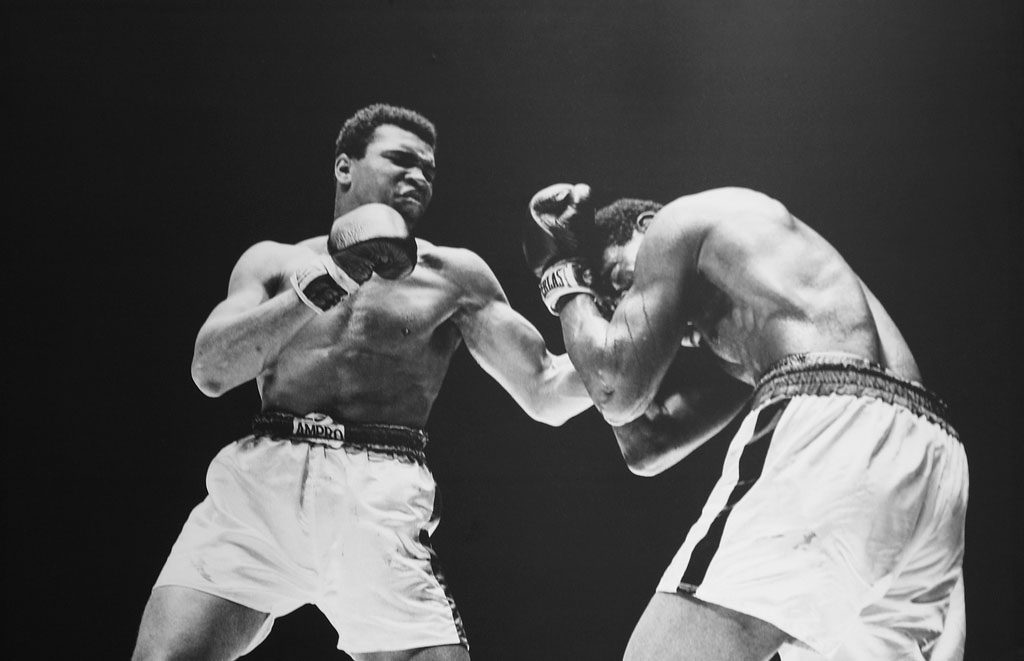Nearly 20 years ago, I wrote a book on the spiritual dimensions of sports. The book, Playing in the Zone, closes with some reflections on Muhammad Ali, who was for me and countless others the epitome of the athletic hero. Following his passing, I reread the section, I suppose as a way of gathering my thoughts. I’m sharing parts of it here, with the wish that it might lend something to the reflections of others.
Goodbye for now, Champ. If fortune is kind to me, we’ll meet again, farther on up the road.
—Andrew Cooper, Features Editor
In Ali the contradictions, the virtues and flaws, of the heroic character were made vivid. In his days as an athlete, Ali was a man of both joyous and deeply troubling passions. In his training camp he would take time out to perform magic tricks for children and carry on to the delight of everyone. But he could also be cruel. Outside the ring, he shamelessly and unfairly taunted Joe Frazier, calling him stupid, a gorilla, an Uncle Tom. In the ring, in a state of battle frenzy, he sadistically tormented the overmatched Floyd Patterson and Ernie Terrell for refusing to call him by his Muslim name.
But to my mind, no one in my lifetime has so embodied athletic virtue. His blend of physical gifts of grace, speed, and strength was a wonder to behold. More importantly, the skill and intelligence with which he put those gifts to use were unmatched. But he had something else, something more. Jose Torres, a world champion himself, writes of Ali’s ability to call up “those mysterious forces.” As much as any athlete anywhere, Ali possessed an indefinable spiritual force that animated and poured through him.
Today Ali is a hero to most every sports lover, even those who used to hate him. Partly, it is because the passage of time and being out of the public spotlight have created more of the distance of heroism. Partly, it is because of his charm and his generosity of soul. But it is also because he has, in the classical sense, paid a price for his heroism, and he has done so without regret. His excellence led him to hybris, to inordinate pride, but despite his physical afflictions, his spirit seems now to be at peace with his moira, with his portion of mortal life. Because he was a hero, and because he fulfilled his life heroically, that fulfillment graces with self-recognition all who let it in.
Many say we need heroes show us how great we can be. I disagree. Heroes do something much rarer and more important. They show us how great they are, and in doing so, they allow us to participate in that greatness. I am not speaking of living through them vicariously, though obviously that does occur. What I mean is that through them we live mythically. Through the numinous power they gather and bestow, they help us feel the gem-like flame of life’s majesty. For this they deserve our discerning yet unreserved gratitude.
From Playing in the Zone by Andrew Cooper, © 1998 by Andrew Cooper. Reprinted by arrangement with Shambhala Publications, Inc. Boulder, CO. www.shambhala.com
Thank you for subscribing to Tricycle! As a nonprofit, we depend on readers like you to keep Buddhist teachings and practices widely available.
